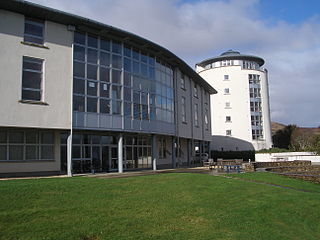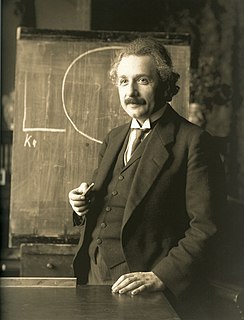Associate may refer to:
Associate may refer to:

A community college is a type of educational institution. The term can have different meanings in different countries: many community colleges have an "open enrollment" for students who have graduated from high school. The term usually refers to a higher educational institution that provides workforce education and college transfer academic programs. Some institutions maintain athletic teams and dormitories similar to their university counterparts.

A psychologist is a professional who practices psychology and studies mental states, perceptual, cognitive, emotional, and social processes and behavior. Their work often involves the experimentation, observation, and interpretation of how individuals relate to each other and to their environments.

A graduate school is a school that awards advanced academic degrees with the general requirement that students must have earned a previous undergraduate (bachelor's) degree. A distinction is typically made between graduate schools and professional schools, which offer specialized advanced degrees in professional fields such as medicine, nursing, business, engineering, speech–language pathology, or law. The distinction between graduate schools and professional schools is not absolute since various professional schools offer graduate degrees and vice versa.
A research assistant, or RA, is a researcher employed, often on a temporary contract, by a university, a research institute or a privately held organization, for the purpose of assisting in academic or private research. Research assistants are not independent and are responsible to a supervisor or principal investigator and usually are not directly responsible for the outcome of the research. However, in some countries, research assistants can be the main contributor to the outcome of the research. Research assistants are often educated to degree level and might be enrolled in a postgraduate degree program and simultaneously teach, for example, if enrolled in a PhD programme they are known as Doctoral Research Assistants.

Together, legal psychology and forensic psychology form the field more generally recognized as "psychology and law". Following earlier efforts by psychologists to address legal issues, psychology and law became a field of study in the 1960s as part of an effort to enhance justice, though that originating concern has lessened over time. The multidisciplinary American Psychological Association's Division 41, the American Psychology-Law Society, is active with the goal of promoting the contributions of psychology to the understanding of law and legal systems through research, as well as providing education to psychologists in legal issues and providing education to legal personnel on psychological issues. Further, its mandate is to inform the psychological and legal communities and the public at large of current research, educational, and service in the area of psychology and law. There are similar societies in Britain and Europe.

The Niagara College of Applied Arts and Technology is a public College of Applied Arts and Technology within the Niagara Region and the city of Toronto in Southern Ontario, Canada.
This is an index of education articles.

Queen Margaret University is a university, founded in 1875 and located in Edinburgh, Scotland. It is named after Saint Margaret, wife of King Malcolm III of Scotland.

Sabhal Mòr Ostaig is a public higher education college situated in the Sleat peninsula in the south of the Isle of Skye, with an associate campus at Bowmore on the island of Islay, Ionad Chaluim Chille Ìle. Sabhal Mòr is an independent Academic Partner in the federal University of the Highlands and Islands. Uniquely, its sole medium of instruction on degree courses is Scottish Gaelic.
A terminal degree is a university degree that can signify one of two outcomes. In some cases, it is the highest degree that can be awarded in a specific academic or professional track. In other cases, it is a degree that is awarded when a candidate completes a certain amount of coursework but does not go on to doctoral work. Some students enroll in a terminal master's program with the goal of preparing to enter a PhD program. For certain professions and research grants, a terminal degree is a minimum eligibility requirement.
Honour is the quality of being honorable.

The Sturm College of Law is the professional graduate law school of the University of Denver. It is one of two law schools in the state of Colorado. Founded in 1892, the Sturm College of Law was one of the first in America's Mountain West. The college is located on the University of Denver's campus, about seven miles south of downtown Denver. According to Denver Law's 2017 ABA-required disclosures, 67.9% of the Class of 2017 obtained full-time, long-term, JD-required employment nine months after graduation, excluding solo practitioners.
Professors in the United States commonly occupy any of several positions of teaching and research within a college or university. In the U.S., the word "professor" informally refers collectively to the academic ranks of assistant professor, associate professor, or professor. This usage differs from the predominant usage of the word professor internationally, where the unqualified word professor only refers to "full professors." The majority of university lecturers and instructors in the United States, as of 2015, do not occupy these tenure-track ranks, but are part-time adjuncts, or more commonly referred as college teachers.
Antioch School of Law was a law school in Washington, D.C. which specialized in public advocacy. The school now operates as the University of the District of Columbia David A. Clarke School of Law (UDC-DCSL).

Professor is an academic rank at universities and other post-secondary education and research institutions in most countries. Literally, professor derives from Latin as a "person who professes". Professors are usually experts in their field and teachers of the highest rank.

The School of Law at the University of Glasgow provides undergraduate and postgraduate courses in Law, and awards the degrees of Bachelor of Laws, Master of Laws, LLM by Research, Master of Research (MRes) and Doctor of Philosophy, the degree of Doctor of Laws being awarded generally only as an honorary degree.

Academic ranks in the United Kingdom are the titles, relative seniority and responsibility of employees in universities. In general the country has three academic career pathways: one focused on research, one on teaching, and one that combines the two.
Academic ranks in Norway are the system of merit-based ranks used by academic employees in academia. Similar to the British rank system, the Norwegian rank system is broadly divided into three pathways, a combined research and teaching career pathway, a research career pathway and a teaching career pathway.
An adjunct professor is a type of academic appointment in higher education. The terms of this appointment and the security of tenure vary in different parts of the world. "Adjuncting" is a way of referring to a bona-fide part-time faculty member who has worked in an adjunct position for an institution of higher education.